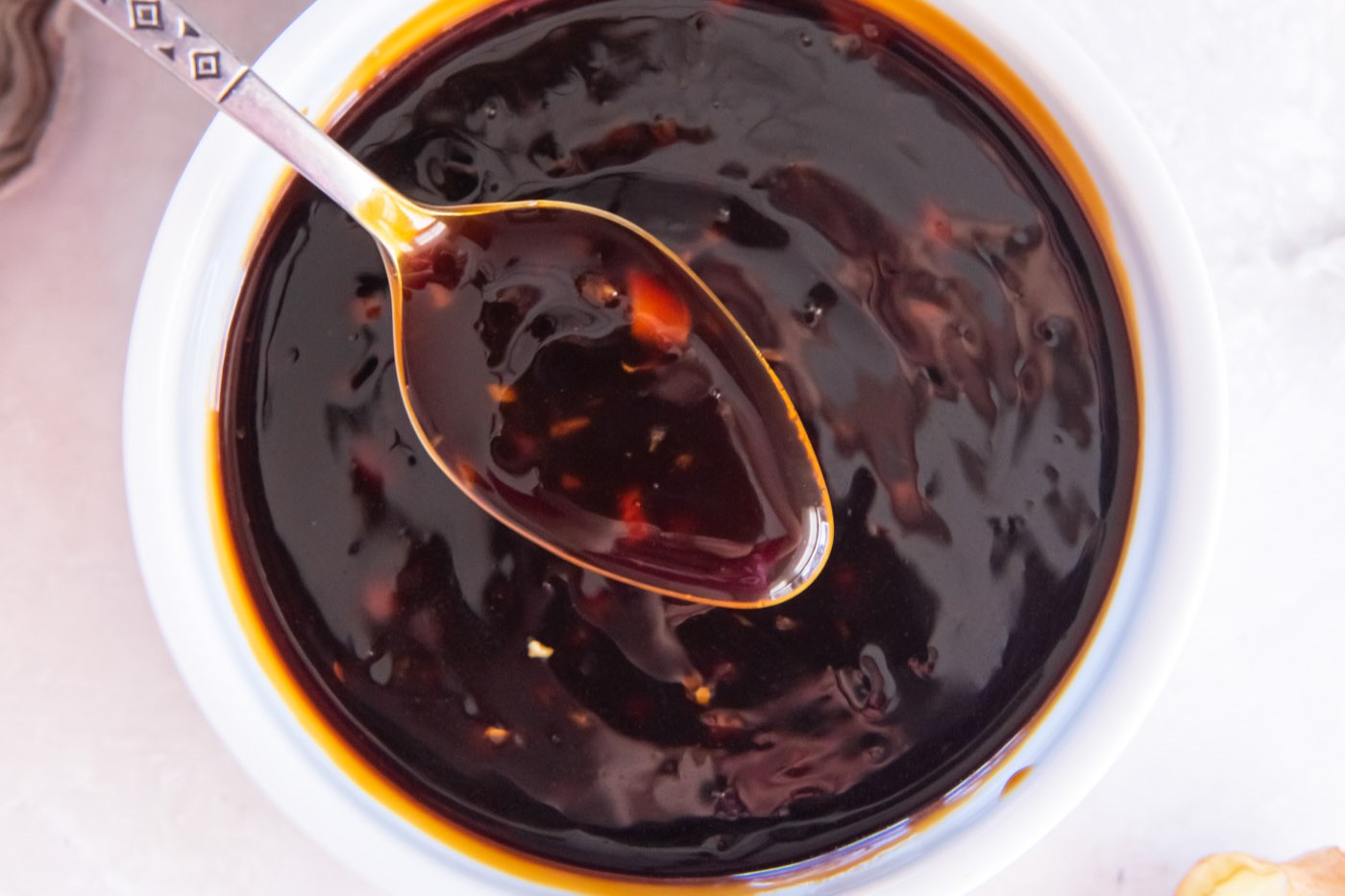
Teriyaki sauce is a popular condiment that adds a burst of flavor to numerous dishes, from stir-fries to marinades. This savory sauce originates from Japan and has gained popularity worldwide for its irresistible combination of sweetness, saltiness, and umami. But have you ever wondered about the nutrition facts of teriyaki sauce?
In this article, we will delve into the 19 teriyaki sauce nutrition facts that you should know. Whether you’re watching your calorie intake, monitoring your sodium levels, or seeking information about the vitamins and minerals present in teriyaki sauce, this comprehensive guide will provide you with the necessary insights.
So, get ready to dive deep into the nutritional profile of teriyaki sauce and discover how it can fit into a balanced diet. Let’s take a closer look at the essential nutrients and potential health benefits of this quintessential Asian sauce.
Key Takeaways:
- Teriyaki sauce is high in sodium and sugar, so enjoy it in moderation to add flavor to your dishes without consuming too much of these ingredients.
- Look for gluten-free and low-fat teriyaki sauce options, or even try making your own at home with simple ingredients like soy sauce, honey, garlic, and ginger.
Calories
One tablespoon of teriyaki sauce contains approximately 60 calories.
Fat
A tablespoon of teriyaki sauce typically contains less than 1 gram of fat.
Sodium
Teriyaki sauce tends to be high in sodium, with around 600-800 milligrams per tablespoon.
Carbohydrates
A tablespoon of teriyaki sauce usually contains around 14 grams of carbohydrates.
Sugar
Teriyaki sauce often has added sugar, contributing to its delicious sweet and savory flavor.
Protein
A tablespoon of teriyaki sauce contains minimal protein, usually around 1-2 grams.
Fiber
Teriyaki sauce is not a significant source of fiber.
Vitamins
Teriyaki sauce does not provide substantial amounts of essential vitamins.
Minerals
While teriyaki sauce may contain traces of minerals, it is not a significant source.
Low in Cholesterol
Teriyaki sauce is typically low in cholesterol, making it a suitable choice for those conscious of their cholesterol intake.
Versatile
Teriyaki sauce can be used as a marinade, glaze, or dipping sauce for various meats, vegetables, and seafood.
Gluten-Free Options
There are gluten-free teriyaki sauce varieties available for individuals with gluten sensitivities or celiac disease.
Low-Fat Variations
Some brands offer low-fat or reduced-fat teriyaki sauce options for those looking to cut down on their fat intake.
No Artificial Colors
Many teriyaki sauce brands pride themselves on using natural ingredients, without the inclusion of artificial colors.
Homemade Options
You can make homemade teriyaki sauce using simple ingredients like soy sauce, honey, garlic, and ginger.
Moderation is Key
While teriyaki sauce can add flavor to your dishes, it should be consumed in moderation due to its high sodium content.
Flavor Enhancer
Teriyaki sauce is known for enhancing the flavors of grilled meats, stir-fries, and other Asian-inspired dishes.
Shelf Life
Store-bought teriyaki sauce typically has a long shelf life, allowing you to enjoy its flavors for an extended period.
Taste Preference
Everyone has a unique taste preference, and teriyaki sauce offers a savory and slightly sweet flavor that many people enjoy.
Now that you know these 19 teriyaki sauce nutrition facts, you can make informed choices about incorporating it into your meals. Remember, moderation is key, and it’s always a good idea to check the labels of store-bought teriyaki sauces for specific nutritional information.
Conclusion
Teriyaki sauce is a flavorful and versatile condiment that adds a delicious twist to various dishes. Not only does it enhance the taste of your favorite Asian-inspired recipes, but it also offers several nutritional benefits. With its low calorie and fat content, teriyaki sauce can be a healthier alternative to other condiments. Additionally, it contains key ingredients like soy sauce, ginger, and garlic, which provide essential nutrients and health benefits.
Whether you enjoy teriyaki sauce as a marinade, glaze, or dipping sauce, it’s important to be mindful of portion sizes and the sodium content. While teriyaki sauce is generally considered a healthier option, moderation is key to maintaining a balanced diet. So go ahead, indulge in the irresistible flavors of teriyaki sauce, but remember to enjoy it in moderation for a tasty and nutritious addition to your meals!
FAQs
1. How many calories are in teriyaki sauce?
Teriyaki sauce typically contains around 50-60 calories per 1 tablespoon serving.
2. Is teriyaki sauce high in sodium?
Yes, teriyaki sauce is known to be relatively high in sodium content. It’s important to be cautious of your sodium intake, especially if you have high blood pressure or other health conditions.
3. Can I use teriyaki sauce in a vegetarian or vegan diet?
Yes, there are vegetarian and vegan versions of teriyaki sauce available in the market that are made without any animal products. Be sure to check the label or opt for a homemade version if you follow a plant-based diet.
4. Does teriyaki sauce contain gluten?
Some commercially prepared teriyaki sauces may contain ingredients with gluten, such as soy sauce. However, there are gluten-free options available, so be sure to check the product label or opt for a gluten-free recipe if you have gluten sensitivities or follow a gluten-free diet.
5. Can teriyaki sauce be used as a marinade?
Absolutely! Teriyaki sauce is a popular choice for marinating meats, seafood, and vegetables. Its sweet and savory flavors add a delicious touch to grilled or roasted dishes.
Was this page helpful?
Our commitment to delivering trustworthy and engaging content is at the heart of what we do. Each fact on our site is contributed by real users like you, bringing a wealth of diverse insights and information. To ensure the highest standards of accuracy and reliability, our dedicated editors meticulously review each submission. This process guarantees that the facts we share are not only fascinating but also credible. Trust in our commitment to quality and authenticity as you explore and learn with us.


